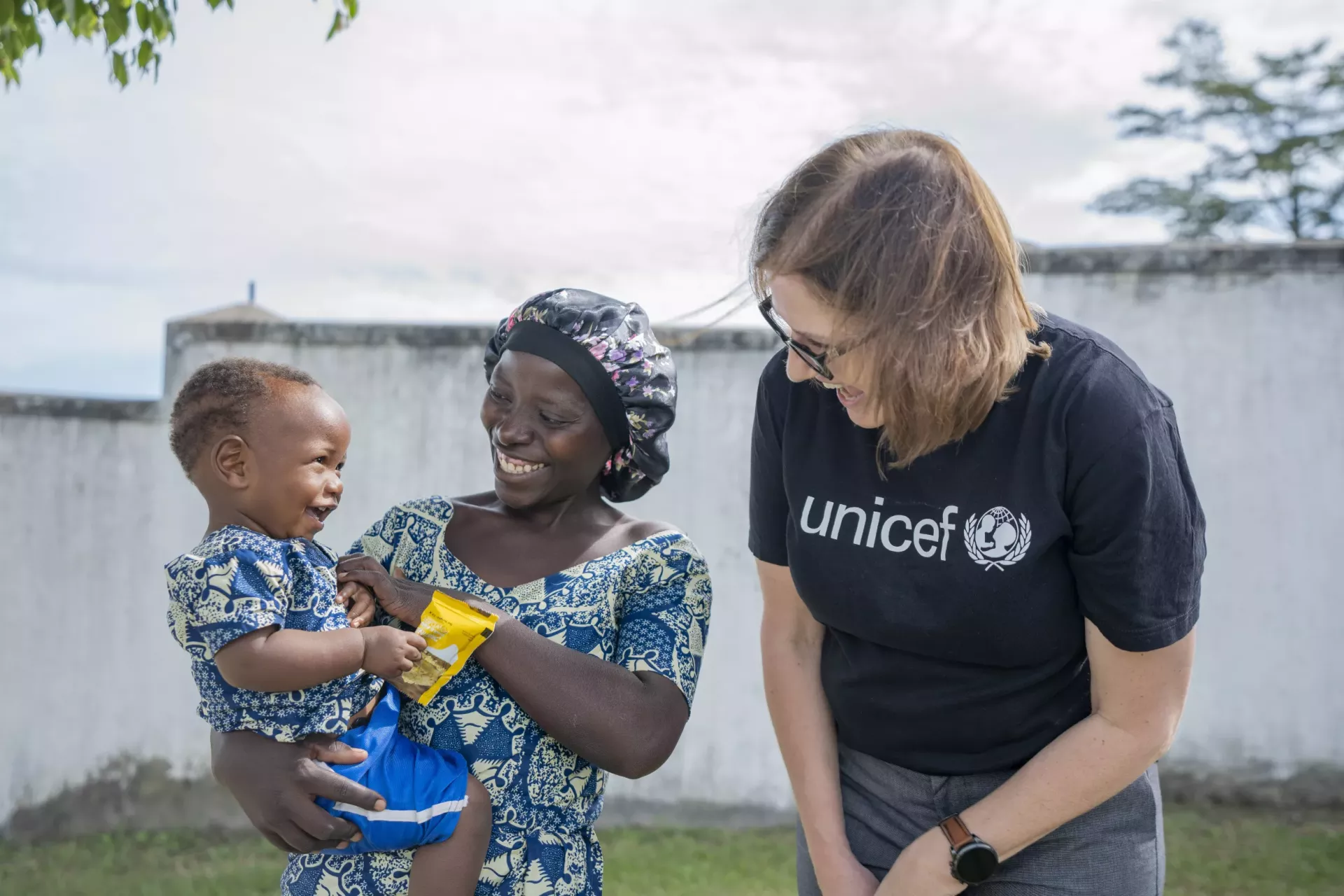KAMWENGE, May 8, 2025: In a bold move to combat malnutrition and reduce child stunting in Uganda by 2030, the Ministry of Health [MOH], in partnership with UNICEF and Pristine Foods Limited, has launched the Egg Powder Initiative for Children [EPIC] in Kamwenge district.
The initiative aims to improve the nutritional status of children, particularly in the Tooro Subregion, where stunting levels remain alarmingly high despite the area being one of Uganda’s major food baskets.
Speaking at the launch recently, Dr. Laura Ahumuza, a senior nutritionist at the ministry of health, said the campaign will target over 25,000 children aged between six to twenty three months.
“This new campaign seeks to curb malnutrition by distributing egg powder to young children in selected districts. Each child will receive one sachet of egg powder per day for six months,” Ahumuza explained.
Kamwenge district which has the highest stunting rate in the country, will serve as the pilot area before the program expands to Kyenjojo, Kasese and eventually the rest of the country.
Ahumuza emphasised that the daily intake of egg powder can meet or exceed children’s dietary requirements for essential amino acids, as well as significantly boost their intake of key vitamins and minerals, nutrients often overlooked in the Tooro Subregion.
Egg powder, produced by pasteurizing and dehydrating eggs, offers the nutritional value of one medium sized egg.
According to Ahumuza, the village Health Teams [VHTs] will be responsible for distributing the sachets to households with eligible children.
Despite its agricultural productivity, the Tooro sub region has the highest stunting rate in Uganda at 38 percent, well above the national average of 26 percent.
In Kamwenge alone, the stunting rate reached 40 percent last year prompting a visit from the parliamentary committee on nutrition to investigate the paradox.
“It’s ironic that Tooro, a major food supplier to even urban areas like Kampala, has the highest child stunting rates,” Kaggwa Ssekisambu, a social and behavioural change expert in the ministry’s nutrition division said.
He noted that the campaign also aims to gather evidence to inform future interventions.
Researchers will evaluate the programme at intervals during the six months rollout to assess its effectiveness,” Ssekisambo added, citing successes in countries like Kenya and Ethiopia where similar initiatives have led to significant reductions in stunting.
Baseline studies by the Ministry of Health also highlight cultural myths as barriers to proper nutrition, particularly the belief that women and young children should not eat eggs. The powdered form helps avoid these beliefs by offering a versatile and discreet decision.
The egg powder can easily be mixed into porridge or added to common meals like beans, rice or matooke or even used to make simple omelets.
Dr. William Mucunguzi, the Kamwenge District Health Officer [DHO] described the initiative as both urgent and necessary.
“Stunting in Kamwenge is a serious concern. This programme is not only timely but essential. We are already training VHTs and other frontline workers to ensure effective implementation,” he said.
Fred Mbonigaba, the Kamwenge district Secretary for Social Services, emphasised the role of household decisions in child nutrition.
“Our communities must stop selling nutritious food like eggs and milk just to buy unhealthy substitutes. This behaviour is costing our children their future,” he cautioned.
The Kamwenge Resident District Commissioner [RDC], Africano Aharikundira, echoed the need for parental involvement.
“Poor care giving practices are a major contributor to stunting. EPIC is here to help, but parents must step up and fully embrace this intervention,” he urged.
Aharikundira also highlighted the campaign’s potential impact. “If successful, EPIC could serve as a model for the rest of the country. Experts estimate that egg powder alone can reduce stunting by up to 47 percent,” he noted.
Looking ahead, Dr.Ahumuza said if the pilot proves effective, egg powder could eventually be made available for private purchases by families that can afford it.
According to the 2022 Uganda Demographic Health Survey, 26 percent of Ugandan children under five are stunted, classified as being too short for their age due to chronic malnutrition.
Uganda’s national target is to reduce stunting to 12.5 percent by 2030, a goal that remains distant unless impactful interventions like EPIC take hold.
https://thecooperator.news/campaign-against-malnutrition-launched-in-adjumani-district/
Buy your copy of thecooperator magazine from one of our country-wide vending points or an e-copy on emag.thecooperator.news
